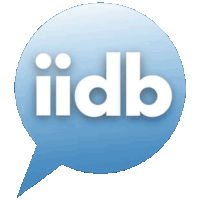Jimmy Higgins
Contributor
- Joined
- Jan 31, 2001
- Messages
- 44,252
- Basic Beliefs
- Calvinistic Atheist
Yeah, you hear it from parents, complaining about how math is taught. This is generally a complaint by people who don't understand math well. In general, when my daughter is doing homework, I see some of the new methods. In general, they are teaching children the fundamental methods that will allow them to do math in their head, not on paper... like an engineer or mathematician.
But every once in a while, there is something I don't like. There was a box chart that was trying to teach fundamentals of pre-algebra, I think, but the charts weren't to scale, and my daughter was having a problem digesting it. Heck, it took me time to figure out what they were trying to do. They were doing a number of things wrong. They were using arbitrary letters for variables instead of an x which can immediately indicate to the student it is a variable and not a misprint. The bigger issue was the scale of the charts, they were all the same, making it much more difficult for a student to understand that there was a numerical significance to the chart.
I'm not losing sleep over it, but it was one of the newer things that I've seen I haven't liked. I usually add a note for the teacher about it. I mean they did the darn number lines forever and now they are going to toss scale out the window? That is silly!
The multiplication is all visual with boxes, which I can appreciate, but often I see quicker ways to solve it, but I think the kids need the experience of slogging through the numbers first so that is second nature. I think the New Math is pretty good. Of course, teaching math isn't cookie cutter and some see things differently and different methods might work better for other kids.
But every once in a while, there is something I don't like. There was a box chart that was trying to teach fundamentals of pre-algebra, I think, but the charts weren't to scale, and my daughter was having a problem digesting it. Heck, it took me time to figure out what they were trying to do. They were doing a number of things wrong. They were using arbitrary letters for variables instead of an x which can immediately indicate to the student it is a variable and not a misprint. The bigger issue was the scale of the charts, they were all the same, making it much more difficult for a student to understand that there was a numerical significance to the chart.
I'm not losing sleep over it, but it was one of the newer things that I've seen I haven't liked. I usually add a note for the teacher about it. I mean they did the darn number lines forever and now they are going to toss scale out the window? That is silly!
The multiplication is all visual with boxes, which I can appreciate, but often I see quicker ways to solve it, but I think the kids need the experience of slogging through the numbers first so that is second nature. I think the New Math is pretty good. Of course, teaching math isn't cookie cutter and some see things differently and different methods might work better for other kids.

